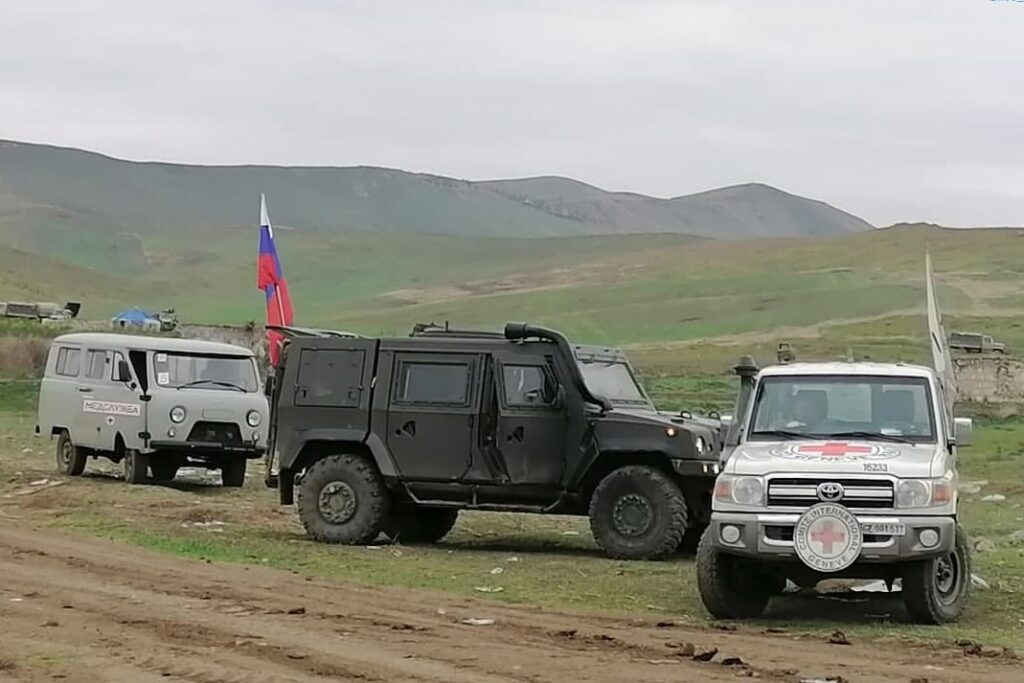Officials in Nagorno-Karabakh have announced that they will share foreign visitors' applications to visit the region with Russian peacekeepers for ‘security purposes’.
Rumours began to swirl on Armenian social networks after Mikayel Minasyan, the son-in-law of former Armenian President Serzh Sargsyan claimed that a group of French journalists and officials had been denied entry to Nagorno-Karabakh.
‘The credentials received in Armenia are invalid’, he said they were told. ‘It is necessary to get credentials from Azerbaijan.’
In a statement released on Monday, officials in Nagorno-Karabakh denied the rumours, stressing that any recent problems at the border were because of a ‘miscommunication’ between local officials and Russian peacekeeping forces, caused by the updating of procedures for the entry of non-Armenian citizens into Nagorno-Karabakh.
‘Citizens of foreign countries, including Russia, must first apply to the Artsakh [Nagorno-Karabakh] Ministry of Foreign Affairs to enter. Then, the information on the applications is passed to the Russian peacekeeping forces, taking into account the security considerations’, the statement reads.
According to the statement, ‘representatives of a number of foreign media and international organizations’, successfully entered Nagorno-Karabakh ‘in recent days’ according to the new procedure.
On February, Artak Nersisyan, the head of the information and public relations department at the Nagorno-Karabakh Ministry of Foreign Affairs further elaborated on earlier statements, denying that Russian peacekeepers had the ability to deny applicants entry and that only the Ministry of Foreign Affairs could ‘consider and approve’ them.
Pilgrims barred
The confusion about entry to Nagorno-Karabakh has come alongside ongoing uncertainties about control and jurisdiction within the disputed region.
While Russian officials and Armenian officials have stated that the tripartite peace agreement did not speak of any change in status for Nagorno-Karabakh, the Azerbaijani government has vehemently protested the regular visitation of the region by Armenian officials.
Additionally, a group of Armenian pilgrims were recently barred from entering Dadivank, a medieval Armenian monastic complex in Nagorno-Karabakh’s Kalbajar district. While the monastic complex remains under the apparent control of Russian peacekeepers, the pilgrims were told that they must supply local Azerbaijani forces a manifest listing the identities of those who wish to visit the complex beforehand.
‘Previously, the Azerbaijani side was demanding only the number of pilgrims heading to Davdivank. The number was to be no more than 30 persons,’ Bishop Vrtanes Abrahamyan, the Prelate of the Karabakh Diocese of the Armenian Apostolic Church told Armenpress.
For ease of reading, we choose not to use qualifiers such as ‘de facto’, ‘unrecognised’, or ‘partially recognised’ when discussing institutions or political positions within Abkhazia, Nagorno-Karabakh, and South Ossetia. This does not imply a position on their status.




 10 February 2021
10 February 2021



